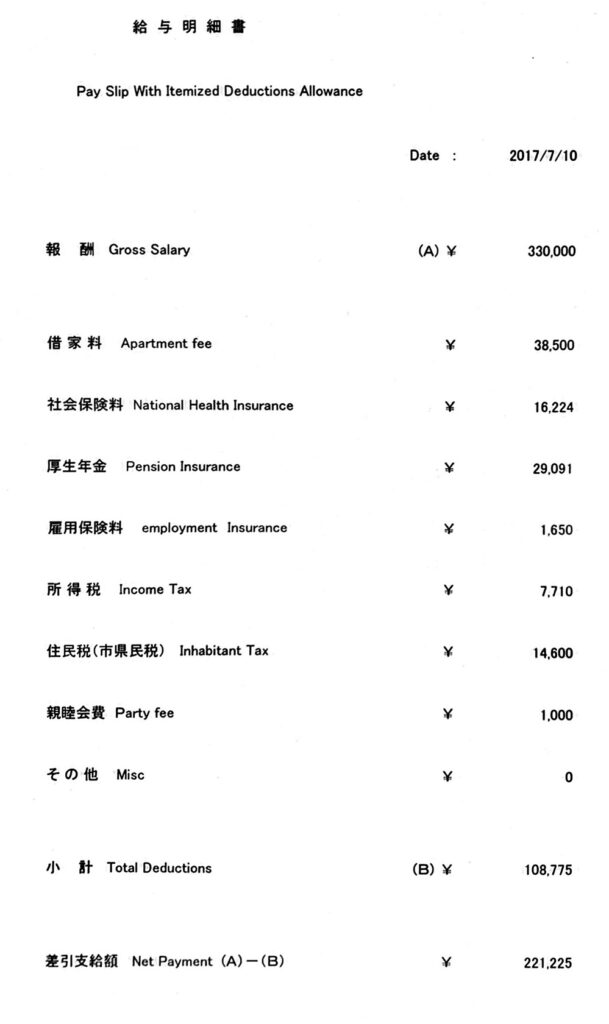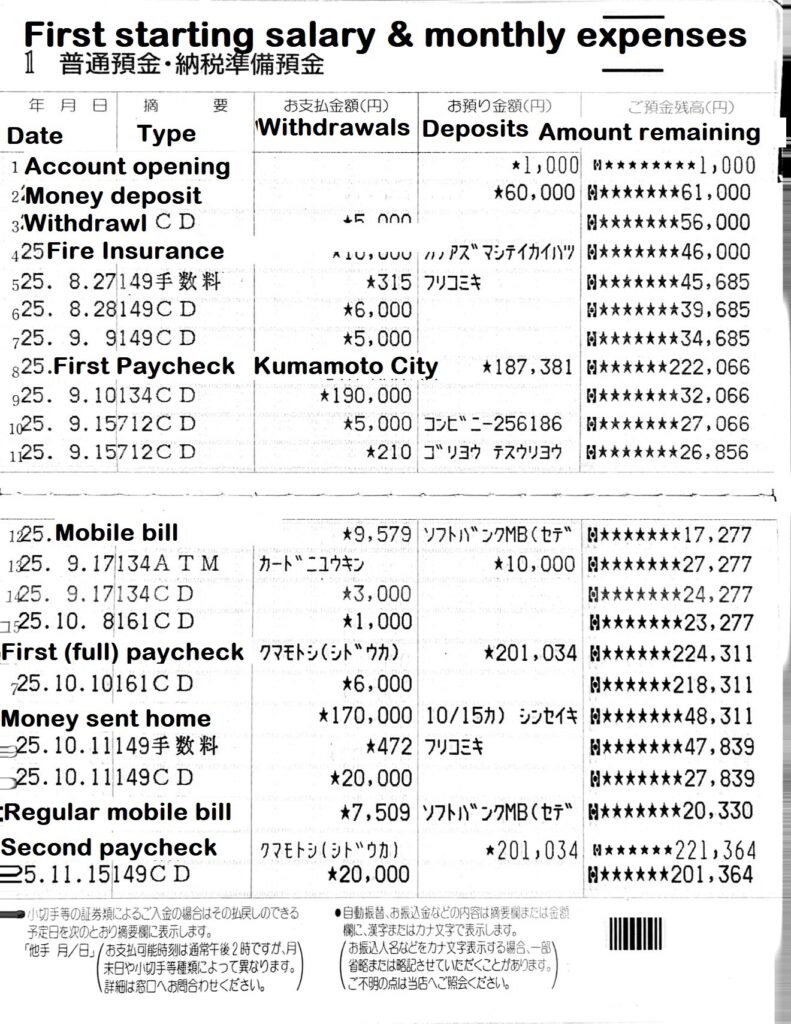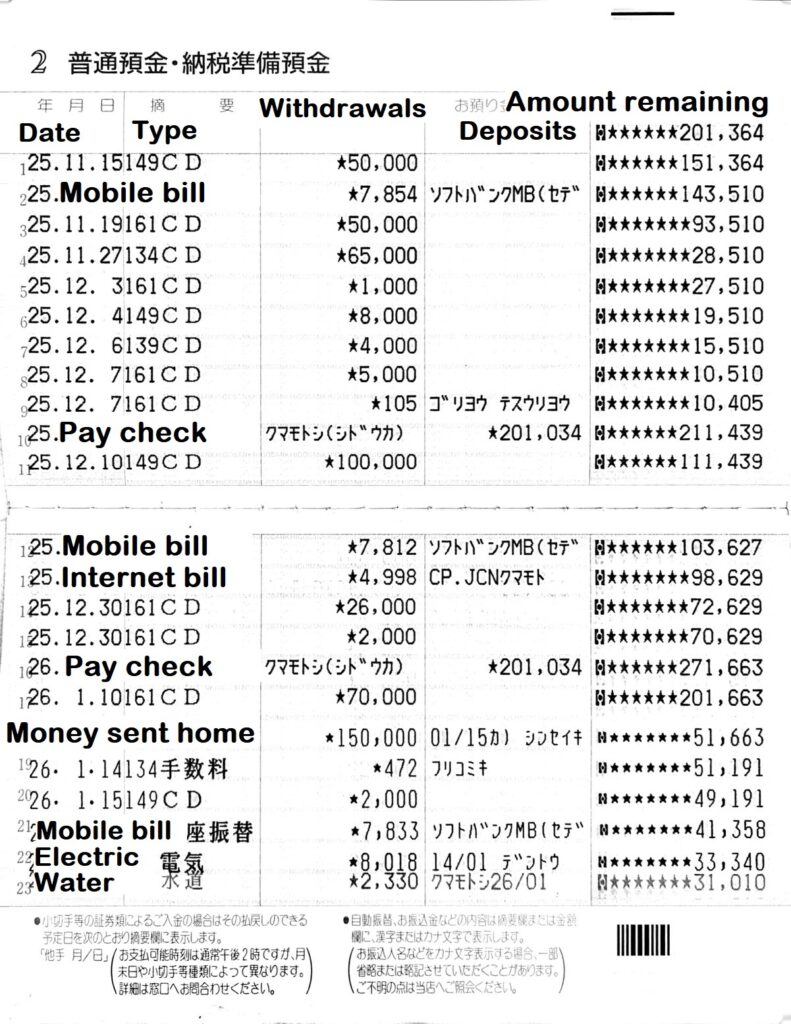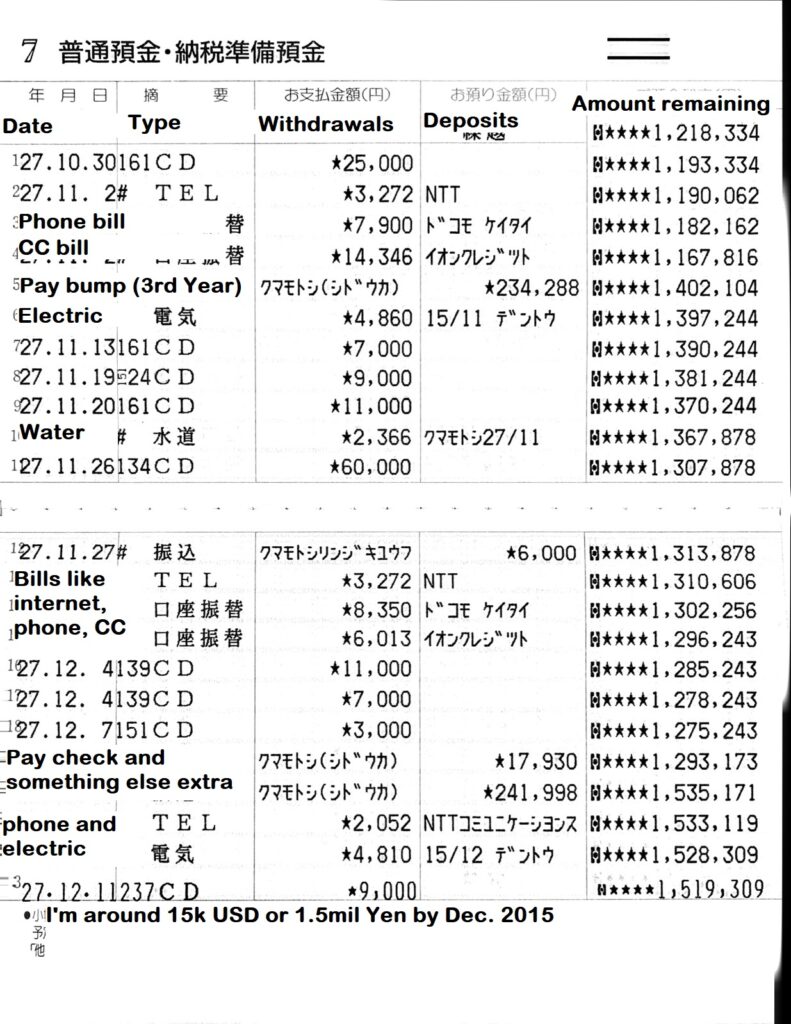Financial literacy is the most important part of being a JET. So many ALTs overlook their finances and wonder why they are broke or not saving any cash! An assistant language teacher’s salary is something you can’t compare with your home country because of economic differences. Japan is very different than the US because the cost of living is significantly cheaper, along with healthcare and other expenses like food and rent.
Just remember that rural Japan is far cheaper than urban Japan! ESID
I try to be as clear as possible with how much I made as a JET and my expenditures. I show my old bank books, which I kept for my records. Disclosure, none of the information below will give you access to my closed bank account. These are just statements.

JET Program Salary after Taxes
My payout every month was 330,000 yen; after taxes, it was 221,255 yen. This was in my 4th year as a JET in 2017.

Approximately, 108,775 yen was taken in taxes, pension, insurance, and apartment fees from my monthly salary.
Since I am an American, I was exempt from some deductions for my 1st and 2nd year. I did not have to pay Inhabitant Tax for my first two years.
You should note that not every Contracting Organization makes a detailed paystub for their employees. I was pretty lucky that my BOE gave us one.
On the official JET Program site, you can check the exact salary for JETs. The cost of rent can make a big impact on the amount of money you receive every month. Even though my rent was 38,500 yen, some people have rent as low as 15,000 yen. ESID.

Monthly Bills and Withdrawals
Below are my REAL bank statements. Don’t worry – nothing of value here. This is from the very beginning of my JET career to the end. I updated my bankbook every single week. I do not show every page, but a general amount to show the transition from broke to savings hero.

The second page of my account with more bills and expenditures. You can see in the “amount remaining” fluctuating as I take out money for loans. Once my student debt was gone, the amount will go up over time.

The next page is a jump from pages 2 to 9. Second year (2014) on JET and finally no student debt.

Time hop to 2015 on JET and my expenses/savings.

Last bank statement as a JET in 2017. Here are all my savings and then… them disappearing thanks to graduate school.

I want to be real and show JETs what they are in for. ESID so nothing is ever the same for any JET or person living in Japan. Next is a breakdown of what the costs were.
Money Left for Bills and Living
Monthly expenditures are all based on your location, decision-making process, frugalness, and willingness to budget. There is no exact way to know how much you’ll typically spend a month

These expenses were my general amount. For example, this is what I usually spent a month, minus a car because I didn’t need one. Generally, I saved ¥100,000 to 120,000 a month because that was my goal. Saving is easy if you have some financial goals in mind.
Food Budgeting

Food varies of course. It all depends on your eating habits. I usually spent about 30,000 yen a month, about 1,000 yen a day on food.
I always ate school lunch (197 – 210 yen a meal) and had cereal every day for breakfast.
Moreover, I always tried to make dinners that were for two nights. I was also lucky because I lived near a vegetable market where I could save money, too.
Food is whatever you choose and wherever you shop. ESID!
Some people love to eat out, and some people love to buy expensive ingredients. Japan can be very cheap or very expensive when it comes to food.
Mobile Phones

Mobile plans change frequently for all carriers.
Since the rollout of major consumer protection policies in the last 10 years, bills have dropped dramatically for consumers and have made it easier for foreign residents or visitors to get pre-paid sim cards and phones.
Major carriers like SoftBank offer big data plans and call packages to be competitive with mobile virtual network operators (MVNO). Major networks have had to sell unused airspace which has created cheaper alternatives for large companies. Also, the Japanese government cracked down on large penalties for leaving carriers, so now it is much easier to drop a provider.
My recommendation is to bring a sim-free phone, like an iPhone, which also has compatible phone bands, and get an MVNO carrier like Sakura, Rakuten, or Line Mobile. This will significantly save you money and reduce unwanted phone bills.